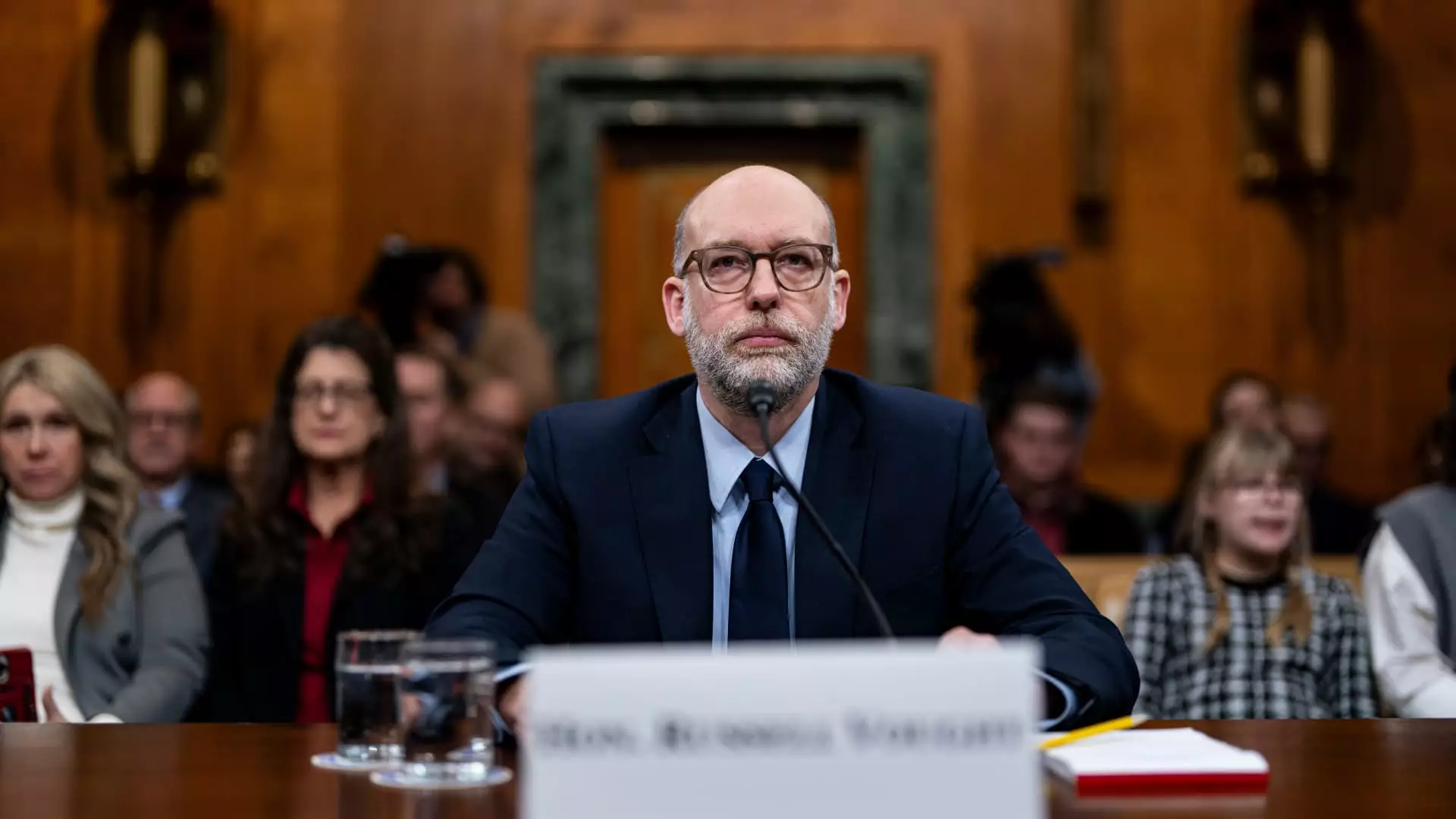The confirmation of Russell Vought as the Director of the Office of Management and Budget (OMB) under President Donald Trump marks a significant pivot in U.S. budgetary oversight. With a narrow Senate vote of 53-47, Republican senators successfully aligned themselves with a figure previously criticized for his stern conservative views. Vought’s ascension has raised questions about the future of congressional authority and the balance of power regarding federal funding and spending decisions.
Vought’s previous experience leading the OMB during Trump’s first term has established him as a controversial, yet influential figure. His assertive stance against laws governing budgetary practices, particularly the 1974 Congressional Budget and Impoundment Control Act, reveals a deep-seated ideological conviction. When Vought refers to this law as unconstitutional, he undermines a critical framework designed to maintain checks and balances within the federal government, opening the door for potential unilateral actions that could reshape the budget landscape indefinitely.
Democrats have responded vocally to Vought’s confirmation. They assert that his ideology poses a genuine threat to essential government services and fiscal accountability. In a fervent plea, Senate Minority Leader Chuck Schumer unequivocally characterized Vought as a “dangerous far-right ideologue.” This reflects a broader struggle within the Senate dynamics, where partisan clashes over fiscal governance have never been more pronounced. Many fear that Vought’s connections with conservative initiatives such as Project 2025 may further deepen partisan divides.
The recent decision by the White House to freeze billions in federal grants and loans—albeit temporarily blocked by judicial intervention—exemplifies the heightened uncertainty surrounding government funding under Vought’s leadership. Critics argue that such actions could jeopardize crucial services integral to the well-being of Americans, thus framing Vought as complicit in endangering public interest.
Conversely, Republican supporters have positioned Vought’s nomination as a necessary step towards fiscal responsibility. Advocates within the party, including Senate Majority Leader John Thune, have emphasized the imperative need to cut governmental waste and rein in spending. Supporters argue that Vought’s qualifications and prior experience uniquely equip him to make panoramic budgetary reforms. Their strategy relies heavily on persuading public opinion that fiscal concessions can create a more efficient government structure.
Yet this narrative clashes with the stark warnings from the left. Democrats fear that Vought, aligned with Trump’s vision, may instigate policies that favor stringent budgetary constraints at the expense of critical social programs. This underscores an increasingly polarized debate about what responsible governance truly entails in contemporary America.
As Vought steps into his role, the ramifications of his confirmation will likely ripple across various sectors of government and society. The extent to which he embodies Trump’s approach to federal spending—favoring executive discretion and minimal congressional input—remains to be seen. Observers will certainly watch closely how Vought navigates this contentious political stage while also attempting to fulfill the budgetary objectives laid down by the administration.
While Vought’s confirmation symbolizes a victory for conservative ideologies and fiscal hawks, it simultaneously raises critical questions about the future of government oversight, public services, and the intricate dynamics of bipartisan governance. The ongoing debates will reflect not only the polarization within U.S. politics but also the evolving priorities of the American electorate.


Leave a Reply